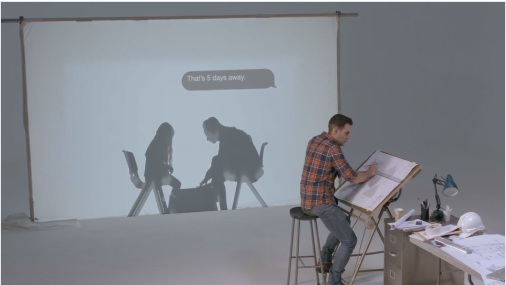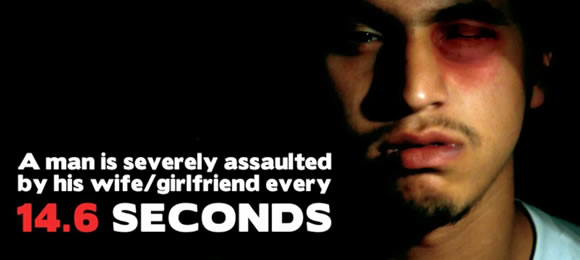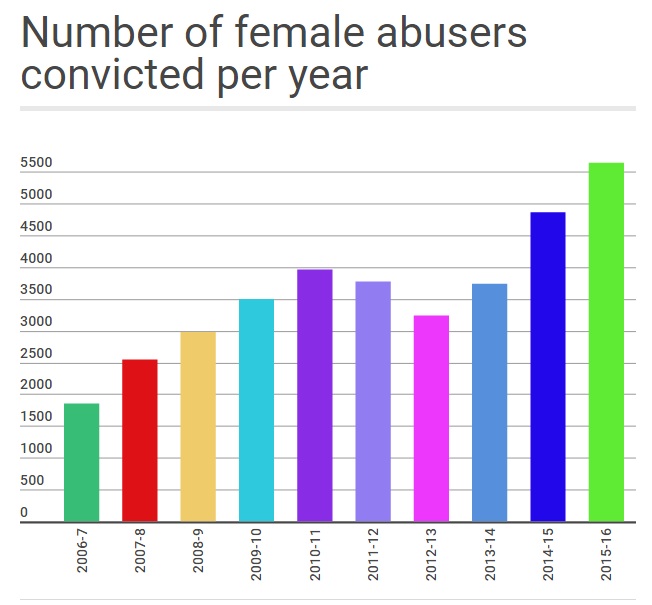FNF Both Parents Matter Cymru is a children’s rights charity supporting parents and grandparents to remain positively involved in the lives of the children they care about. Our work is underpinned by the UNCRC – specifically Articles 9.3 and 18.1. Most people who seek our help are fathers facing exclusion from the lives of their children
Our telephone Helpline receives around 1000 calls per annum. Our 11 face to face monthly support meetings are attended by around 1100 people each year. All of our meetings are registered with the Law Society’s charity Law Works Cymru as Legal Advice clinics.
SUMMARY
Government has a fundamental role in providing leadership to tackle the persistent problem of gender equality. Almost all activity and funding is directed to improving the position of women in terms of employment or support for their parenting role. That work is important and must continue if we are to have genuine equality in the UK. However the position of fathers – particularly support for their role as parents – must also be recognised if only to ensure that women benefit. How can women ever fulfil their potential across all aspects of civil society if we are to presume that they will shoulder the exclusive burden of child care?
KEY ISSUES IDENTIFIED
- Societal pressures – fathers and mothers perceive that children are the primary responsibility of women
- Services funded by tax payer fail to engage with fathers and show little appetite to do so.
- Non Resident fathers face the biggest barriers to engagement
- Non Resident fathers on very low incomes BELOW NI and tax thresholds face an effective ‘Marginal Tax Rate’ in excess of 100%
- No agenda around engaging women to understand that children are not their exclusive responsibility
How well do fathers feel their current working arrangements help them to fulfil their caring responsibilities for children of all ages?
- We undertake research annually in Wales for our Welsh Dads Surveys [i][ii] These surveys are primarily concerned with the experience of men in relation to engaging with statutory services in their role as fathers. Around one in five respondents identify as a Non Resident father (the charity’s primary service user group).
- Our 2016 survey noted that 44% shared caring duties with partners roughly equally, 20% provided some care and 22% said they were excluded from the care of their children. The barriers faced by fathers can be seen from the following comments regarding engagement with schools made by respondents to our 2016 survey
‘Schools are reluctant to share information with non resident parent..’
‘Pathetic, have no interest in ensuring a father who is a professional is kept up to date with their children’s progress.’
‘I had no contact from school for over a year while fighting for access.’
‘Despite asking for copies of school reports and information about parents’ evenings I am often forgotten. I need to ask each time. It never happens automatically. I feel like an afterthought.’
- Are there employment-related barriers to fathers sharing caring roles more equally?
- The gender bias against fathers in the workplace was identified in an ILM report prior to the introduction of the current Shared Parental Leave arrangements [iii] The report stated that employers are culturally less accepting of a father’s rights to take paternity leave finding that 63% of employees feel their organisation is supportive of mothers taking up to a year’s maternity leave, but significantly fewer (58%) felt their employer is supportive of fathers taking just two weeks.
- The ‘Fatherhood Penalty’ has been well described in the report by Working Families / Bright Horizons. The analysis reflects some of the barriers to all fathers undertaking a shared care role. However these difficulties are greatly exacerbated for separated fathers who typically have far fewer resources to be able to share care roughly equally. These men are often not perceived to be parents as they are not the primary carers for their children. This serves to further marginalise men as parents.
- Most support services for parents are available almost exclusively during the primary working hours of 9-5 Monday to Friday. This means that they are much less accessible to men (and of course to women) in full time employment. In a study undertaken by our charity in 2014 [iv] one professional in parenting support stated that:
‘Fathers normally work during the hours that the parenting sessions run. Sessions in the locality are run during office hours. Fathers struggle to take time off to attend sessions.’
- This perception by professionals is a major barrier to men accessing the support they need from initiatives already funded by Governments to support parenting.
- One further example of the problems faced by fathers can be illustrated from a response received from a school in Cardiff about engaging with fathers. They stated ‘Not many of our children have fathers’.
- RECOMMENDATION –
- Require all services funded from public sources to record the gender of parents they engage with
- Do fathers have the financial support to enable them to fulfil their caring responsibilities?
- The marginalisation of fathers is made worse by the default position that Government support such as Child Benefit is paid to mothers and cannot be easily split between separated parents. This creates a ‘Winner Takes All’ scenario that creates the impression that men are superfluous to families post separation.
- Shared care of children is penalised by Child Maintenance arrangements that reward contact denial by reducing the payments to the Parent with Care for each overnight the child is with the Non Resident Parent. This becomes an issue for fathers because 90% of parents receiving child benefit payments are female.
- The current arrangements for shared parental leave simply don’t work. Whilst it is good news that Non Resident Parents are recognised in the provisions – so that parents do not have to be living together – it is unclear what provision applies if the mother has refused to allow the father’s name to be included on the birth certificate and therefore he does not have Parental Responsibility.
- The scheme is however fundamentally flawed as the mother controls whether – and the extent to which – the father can access Shared Parental pay.
- The lack of take up of Shared Parental Leave hit the headlines in early 2016 with reports of just 1% of men taking up the entitlement. This was based on research undertaken by The Women’s Business Council and My Family Care. Delving deeper into the research findings exposes the underlying problems with the Government’s policy. 55% of women surveyed said that they wouldn’t want to share their maternity leave and around 50% of men and women believed that SPL could negatively impact a man’s career. The Government’s own estimates set the likely take up at between 2 and 8%. This highlights a lack of ambition by Government to change the dynamic of work and family in the UK.
- Sweden offers a model for tackling the issues. Shared Parental Leave was introduced there in 1974. The idea was that couples got six months’ leave per child with each parent entitled to half the days each. However, men had the option of signing their days over to the women – and most of them did. As a result, two decades later, 90% of the leave days were still being used by women.
- A “daddy quota” was introduced in 1995 to resolve this. It allocated 30 days’ leave solely to the father on a use-it-or-lose-it basis. If the father didn’t take a month off work, then the couple as a whole would lose a month’s paid leave. In 2002, this was extended to 60 days. Both reforms had a direct impact on the proportion of leave taken by the father so that by 2014 men were taking 25% of all the days available to the couple. As of 1 January 2016, that quota had risen to 90 days. [v]
- RECOMMENDATIONS –
- Share all Government financial support for parents equally between those who have Parental Responsibility for a child
- Remove the incentive to prevent contact by eliminating the overnight care deduction from the Child Maintenance calculation as part of a wider review of Government financial support for all parents.
- Revise Shared Parental Leave to introduce a ‘Daddy Quota’ on a use it or lose it basis.
Are there social or attitudinal barriers to fathers in the workplace which need to be challenged?
- Social attitudes to gender roles in caring for children are eroding all the time although they still persist in some key areas particularly when parents are separated.
- Support in the wider population for a traditional division of gender roles has declined, though substantial support remains for women having the primary caring role when children are young. [vi]
- This change in social attitudes can be seen by comparing responses from the mid 1980s to more recent surveys. Thirty years ago almost 50% of respondents agreed “a man’s job is to earn money; a woman’s job is to look after the home and family”. That figure has fallen to 13%. This decline is primarily a result of generational replacement, with consecutive generations being less supportive of traditional gender roles.
- This change in attitudes is not reflected in the experience of separated fathers who remain marginalised and excluded. This is predominantly a problem where disputes occur between parents over child care and contact when many mothers feel that children are their possessions.
- That fact can be further illustrated by examining some of the quotes from the British Social Attitudes survey [vii]
‘A job is alright, but what most women really want is a home and children ‘
‘Being a housewife is just as fulfilling as working for pay’
- The issue of female control of families and childcare (and men’s acquiescence in that) is shown by the responses to a new question posed in 2012 in the British Social Attitudes survey
‘Consider a family with a child under school age. What, in your opinion, is the best way for them to organise their family and work life? And, in your opinion, which of these options would be the least desirable?’
- The responses suggest that the public retains a view that there should be a gender divide in terms of caring responsibilities: the shift has been in accepting the idea that a mother works part-time, rather than not at all. [viii] Unpicking those gender roles is fundamental to the long term strategy of closing the Pay Gap.
- RECOMMENDATION – Government funding for initiatives that:
- encourage men to see child care as their responsibility
- engage mothers to ensure that they no longer see children as their possessions.
- Are there changes to the workplace – such as an increase in freelance, agency or casual working – which might have an impact on fathers? Are there challenges for fathers working in particular employment sectors?
- The imbalance in the Private / Public Sector employment gender balance is a key driver of difficulty. In Wales women outnumber men in the Public Sector by 2:1 [ix] yet no incentives or initiatives are in place to increase recruitment of men into areas of employment where women predominate.
- In contrast the Welsh Government is a key player in both funding and setting the tone for initiatives designed specifically at empowering women to enter traditionally male areas of employment. One excellent example is the £1.5m of Welsh Government funding for Chwarae Teg’s Agile Nation 2 project [x] that ‘kick-started’ a further £10m of EU funds. Agile Nation 2 is an excellent project designed specifically to assist women into employment in 9 key sectors including Tourism which already has a higher proportion of women to men employed (58%) [xi].
- The discrepancy between the genders is highlighted by the Welsh Government led campaign to recruit more women into the Fire Service [xii]compared to its indifference to the recruitment of men into the Early Years workforce.
- Both these areas have a gender split of between 40 and 50:1 yet in contrast to the initiatives to support female employment in traditional male roles the Welsh Government overstated the number of men employed in the sector by a factor of 4 in its consultation document about the 10 year workforce plan where it is claimed that one in eight are male (12%). [xiii] The actual figure from the Care Council Workforce study is 3% [xiv]
- There are no measures to tackle the gender disparity in the Early Years workforce despite lobbying on our part and a proposal to work with Welsh Government using a Scottish model [xv]to substantially improve the position. Our charity was told by a senior Welsh Government official that it was ‘highly unlikely that men would be attracted to Early Years as it was low paid.’ The irony that the Welsh Government is the largest employer in the sector and should have a leadership role in driving wages higher seemed not to be appreciated.
- What role can Government, employers and other stakeholders play in overcoming these barriers? What policy or legislative changes would be most effective in supporting fathers to fulfil their caring responsibilities?
- The ONS data on the Gender Pay Gap is the most important source of information in this area, [xvi] and is pivotal in our understanding of the underlying issues.
‘When looking at the differences in pay by age group for full-time employees, the gap is relatively small up to and including those aged 30 to 39.’
- The report carries on to state that
‘From 40 upwards, the gap is much wider. This is likely to be connected to women taking time out of the labour market to have children.’
- The ONS report then states that
‘Having children may also change what women want from a job. The American economist Claudia Goldin sees women pursuing “temporal flexibility” as “perhaps the most powerful explanation for the gender pay gap”. What this means is women are more likely to want the ability to work flexible hours, or to work at home, or to complete a project outside a tight schedule.’
- One interesting side note about the issue of part time working and low pay is contained in the Table Gender pay gap by age group, UK, April 2016 that indicates that men employed part time are paid less than women (substantially less in the 30-39 category).
- It seems clear from this data that women believe that they are the ones who will assume child care responsibilities. Tackling that requires a societal change of attitudes emphasizing the role of fathers in childcare. The ‘problem’ can be further illustrated by examining the gender of Receiving Parents of Child Maintenance where more than 90% are female.
- Tackling this huge societal problem may seem overwhelming yet there are precedents that demonstrate how this can be achieved.
- Sweden has revolutionised the shared care of children in a generation creating a scenario where Joint Physical Custody (shared parenting) now accounts from more than 40% of the child care arrangements for separated parents. Benefits to children are shown in the study [xvii] but the potential gain for parents – both for fathers to play a more ‘hand on’ role with parenting and for women to close the Gender Pay Gap are clear.
- Governments have a the primary role in addressing the gender bias that exists in many public services such as education, health, Family Justice and parenting support. Data from our Welsh Government funded mapping survey in 2014 indicated that parenting support services failed to reach men – with the average percentage engaged being between 3 and 11%. [xviii]
- The survey received responses from 32 different services that supported 169,000 service users over a 12 month period. Professionals identified significant barriers to engagement including:
‘Mothers as gatekeepers’ 59%
‘Apathy by men’ 26%
‘A lack of interest by professionals in working with men’ 19%
- The Welsh Government continues to refuse to collect data on the gender of parents engaged by its main parenting support services Families First and Flying Start as it believes that to do so would be
‘a disproportionate administrative burden’ [xix]
- RECOMMENDATIONS –
- Support for Shared Parenting through initiatives such as revising the GOV.UK information on Parental Responsibility / re-examining the definition of ‘Involvement’ in s11 of the Chidlren & Families Act 2014 / tackling institutionalised sexism in Public Services supporting parents
- a major campaign of education funded by Governments to engage with women to address their deep seated belief that children are their responsibilities alone.
- A strategy to secure a 50/50 division by gender of ‘Receiving Parents’ of Child Maintenance by 2040.
- Enact the provisions of the Welfare reform Act 2009 to introduce compulsory joint birth registration.
- Are there specific issues facing fathers from particular groups or backgrounds, for example because of their income or ethnicity, or fathers of disabled children and young people?
- Non Resident Parents (NRPs) face significant barriers to engagement with their children. A direct connection between child contact and the financial contribution from NRPs was established in research in 2014 where it was demonstrated that Non Resident fathers who saw their children several times a week were almost three times more likely to contribute financially to their upbringing. [xx]
- NRPs on low incomes face some of the greatest difficulties. These result from the failure of the Child Maintenance system to take into account the effects of inflation since the qualifying thresholds for payment were set in 1998 and there is NO MECHANISM IN THE LEGISLATION FOR EVER INCREASING THEM.
- Original research by Dr Christine Davies at Royal Holloway University of London has highlighted the extent of the problem.
- Parents working less than ONE hour per week at the National Living Wage from 1st April 2017 (£7.50 per hour) have to pay Child Maintenance to the ‘Receiving Parent’ irrespective of that parent’s financial circumstances. It is only if a ‘Paying Parent’s weekly income is less than £7 per week that nothing is payable.
- Parents earning £100 per week (£5,200 p.a.) pay a ‘Reduced Rate’ ranging from 17% of Gross Pay for one child to 31% for 3 or more children. The threshold for paying more than £7 p.w. equates to less than 13 1/2 hours per week at National Living Wage from April 2017.
- To put these thresholds into context
- National Insurance payment threshold is £155 per week
- Income Tax threshold is £221 per week
- The rate at which ‘Paying Parents’ start paying Child maintenance and the £100 and £200 thresholds for higher payments were set in 1998. They have never been raised and there is no mechanism for raising them. This leads to a scenario where those on very low incomes who start to earn some money see their actual income REDUCE as they earn more. They have a Marginal Tax Rate exceeding 100% throughout the region between the £100 and £200 thresholds which falls to 99% until Universal Credit runs out.
- RECOMMENDATION
– re-examine the Child Maintenance regulations to increase the Thresholds for payment
- Are there examples (in the UK or internationally) of best practice amongst employers that could be taken up more widely?
- Sweden has shown clear examples of best practice both in terms of Shared Parental Leave as well as in Shared Parenting and on the wider subject of gender equality.
- It is clear that unless the Government is prepared to properly commit to gender equality in a meaningful way both men and women will continue to suffer, the economy will not work at maximum efficiency and the burden of welfare will continue to grow. However the greatest losers will be children who will continue to lose out on the benefits of having both their parents involved positively and substantively in their upbringing – as is their right under both the UN Convention on the Rights of the Child (Articles 9.3 and 18.1 in particular) but also under Article 24(3) of the EU Charter of Fundamental Rights.
[i] https://www.fnf-bpm.org.uk/image/upload/branch/cymru/WELSH_DADS_SURVEY_2016_report_FINAL.pdf
[ii] https://www.fnf-bpm.org.uk/image/upload/branch/cymru/WELSH_DADS_SURVEY_report_v2.pdf
[iii] Shared opportunity: Parental leave in UK business – Institute of leadership in Management https://www.i-l-m.com/~/media/ILM%20Website/Documents/research-reports/shared-leave/ilm-shared-parental-leave-report%20pdf.ashx p2
[iv] https://www.fnf-bpm.org.uk/image/upload/branch/cymru/Male_particiation_in_Family_Support_services_March_2014.pdf
[v] Where new dads are encouraged to take months off work http://www.bbc.co.uk/news/magazine-35225982
[vi] British Social Attitudes survey – Nat Cen Social Research 2013 http://www.bsa.natcen.ac.uk/media/38457/bsa30_gender_roles_final.pdf
[vii] http://www.bsa.natcen.ac.uk/media/38457/bsa30_gender_roles_final.pdf p119
[viii] http://www.bsa.natcen.ac.uk/media/38457/bsa30_gender_roles_final.pdf p 114 Table 5.3
[ix] 246,000 females / 128,000 males employed in Public sector in year ending 30 Sept 2016 Source: https://statswales.gov.wales/Catalogue/Business-Economy-and-Labour-Market/People-and-Work/Employment/Persons-Employed/publicprivatesectoremployment-by-welshlocalauthority-status
[x] https://www.cteg.org.uk/who-is-it-for/
[xi] http://ec.europa.eu/eurostat/statistics-explained/index.php/Tourism_industries_-_employment#Tourism_creates_jobs_for_women
[xii] Push to get more women firefighters in South Wales http://www.bbc.co.uk/news/uk-wales-31447069
[xiii] http://dera.ioe.ac.uk/21025/2/140922-10-year-plan-for-the-early-years-childcare-and-play-workforce-in-wales-plan-en.pdf
[xiv] http://www.ccwales.org.uk/news/2012/11/14/the-early-years-workforce-in-2012/
[xv] Men in Childcare – Scotland http://www.meninchildcare.co.uk/Global/index.html
[xvi] http://visual.ons.gov.uk/the-gender-pay-gap-what-is-it-and-what-affects-it/
[xvii] Bergstrom et al 2015 http://jech.bmj.com/content/early/2015/04/09/jech-2014-205058.full
[xviii] Mapping Male Participation in Parenting support services https://www.fnf-bpm.org.uk/image/upload/branch/cymru/Male_particiation_in_Family_Support_services_March_2014.pdf
[xix] Letter from First Minister Carwyn Jones AM to FNF Both Parents Matter Cymru dated 3rd August 2015
[xx] Poole et al 2014 Modern Fatherhood project http://www.modernfatherhood.org/wp-content/uploads/2013/11/Briefing-paper-Non-resident-fathers.pdf p9











